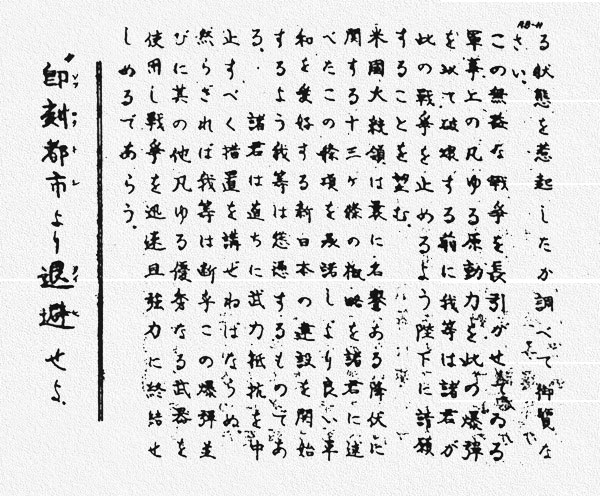Israel and Gaza: How Civilized Warfare Can Lead to Meaningful Peace Talks

On Friday, Rush Limbaugh posted an attention-grabbing message on his Facebook page questioning Israel's warnings to civilians of impending attacks:
When has anybody ever been so humanitarian as to warn a target that an attack is coming? This is what Israel has been reduced to in order to be perceived as fair by the media and by the United Nations and by Hamas.
Has humanitarian behavior really been reduced to just publicity stunts to prop up public opinion for waging politically unpopular wars? Contrary to Mr. Limbaugh's assessment, there is a long history of warning opponents of impending attacks.
By World War I, the methods of destruction had become so sophisticated that Total War became a reality many leaders were unwilling to accept. Widespread destruction and death were inevitable. A single explosion during the Battle of Messines (1917) resulted in the death of over 10,000 German soldiers -- the most lethal non-nuclear wartime explosion ever.The nature of war had changed forever.
Even still, the attitude of "all is fair in love and war" is pervasive -- Carl von Clausewitz is often quoted as saying that "war is a mere continuation of politics by other means." Yet his overriding thesis -- that "war is nothing but a duel on a larger scale," implies the honor code implicit throughout generations of dueling.
Fairness was not lost on American leaders in World War II, and it made for good propaganda material as well. The United States (along with the Allied Forces) repeatedly warned German and Japanese forces of major attacks -- warning civilians to clear out specific areas prior to their destruction. Millions of leaflets were dropped on Japan prior to the dropping of the atomic bombs.
American forces warned Japanese citizens to evacuate ten specified cities that had been picked for destruction. While the truth remained that we only had two atomic bombs, Hiroshima and Nagasaki were both listed as cities that should be evacuated.
These leaflets were not written in the bellicose style of propaganda, but written with earnest sincerity -- keeping the reality of the attack simple and direct. They were meant to be believed.Wars always end. In most cases, you're going to have to live with your opponent afterwards. The atrocities and insults of previous wars become the fodder for the next ones -- proven by Europe's long history of out of control rivalries that spanned centuries.
Israel should be applauded for its actions in battle, and hopefully it can be equally applauded in its actions for peace. Being "civilized" in war is the first step to truly having civilized and meaningful discussions of peace.
Given Israel's history during the Shoah, it is unlikely that Israel will commit to all out Total War against Hamas and the Palestinian population. Both sides need to start considering what it will take to make an honorable, stable peace in the region. Neither side is leaving, they'd better get used to co-existing.
Photo Source: Caroline Glick




